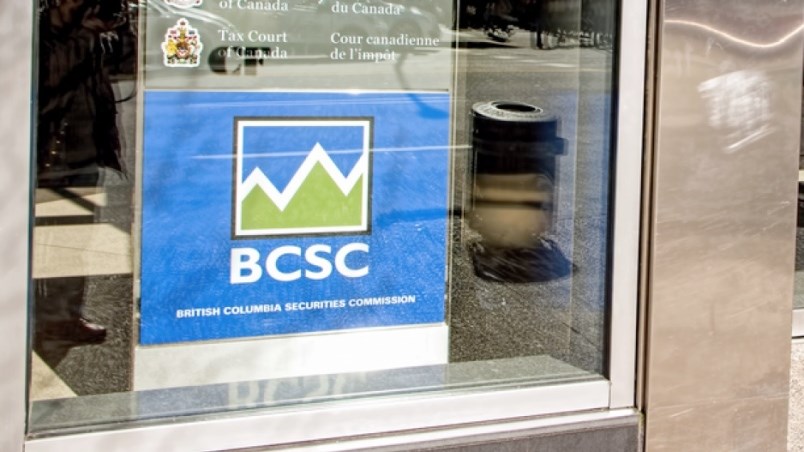That lack also shows a gap in protections provided by the BC Securities Commission (BCSC), as compared to other western jurisdictions, most notably Ontario and the United States.
“I think when you don't have strong protection measures, or an award – any potential upside – people just don't want to come forward because there's really no reason to and there’s a lot of downside in doing so,” explained Vancouver-based securities lawyer Teresa Tomchak of Farris LLP.
Whistleblowing has recently taken centre stage in the United States with the revelations of former Facebook data scientist Frances Haugen, who handed over company documents to media and U.S. Congress that purportedly show the social media giant ignored its products’ harmful consequences for teenagers so as to not reduce revenue. Speculation now swirls around the legalities of her actions and how laws may or may not protect her from being sued.
Here, former British Columbia Lottery Corp. director of anti-money laundering Ross Alderson has most recently familiarized British Columbians with whistleblowing – although not from a public markets perspective – when he took his concerns about regulations to media. The B.C. Civil Liberties Association denounced Alderson’s actions as a major breach of privacy laws at the Commission of Inquiry into Money Laundering in B.C.
Legislation under the B.C. Securities Act protects whistleblowers from retribution from their past or present employer. However, these protections can be limited, Tomchak said.
“In fact, I have cautioned many people against complaints to the BCSC because it can come back, and I have seen this unfortunately with clients who made complaints before seeking counsel and then they have become the subject of the investigation, and ultimately enforcement proceedings as well,” said Tomchak.
“In my mind, it is not as much the ability of protecting an employee from an employer, as much as protecting someone who's reporting to the securities commission from their own misconduct,” said Tomchak.
Furthermore, the Act spells out that the protections are afforded to an employee solely for making the disclosure. It doesn’t mean the company can’t find fault with the employee elsewhere.
“They’ll just come after you for different things,” she said. “In my view it is very risky in B.C., because you have no upside, and a lot of downside. So, there can be all these other potential minefields with securities laws, where companies might be offside and the person reporting it might ultimately be responsible for those other violations, which only come to light as a result of the commission starting to investigate the company. And so I've seen situations like that, and, and to me that that's actually the biggest drawback.”
The other key drawback for Tomchak is how B.C. has no rewards program, unlike in Ontario and, more robustly, the United States. Rewards are critical, she said.
“It's also a lot of work if you make a complaint; it's not just you've made a single complaint, and they don't come back to you and ask you for more information. They want more information to do further investigations.”
The U.S. Securities and Exchange Commission (SEC) frequently posts news of awards. On October 14, for example, it awarded $40 million to two whistleblowers whose information and assistance contributed to a successful enforcement action.
The SEC has awarded approximately $1.1 billion to 218 individuals since issuing its first award in 2012. The awards are paid entirely through monetary sanctions paid to the SEC by securities law violators. Awards can range from 10% to 30% of the money collected when the monetary sanctions exceed $1 million, according to an SEC statement. The program is relatively new, coming in with the 2010 Dodd-Frank Act intended to shore up enforcement against misconduct in America’s markets.
Canada does not have a federal securities regulator. Instead, provinces regulate issuing companies. B.C. and Ontario provide the lion’s share of regulation through their respective commissions.
Since its launch in July 2016, the Ontario Securities Commission reports its whistleblower program has awarded more than $8.6 million to whistleblowers. Tomchak said company directors are generally not included in the Ontario program – which may account for the relatively small rewards total.
The BCSC wouldn’t make anyone available to Glacier Media for comment on its policies but said confidential policy discussions are taking place. The B.C. Securities Act was only amended in March 2020 to provide those limited protections to employees against disclosure reprisals. Before that there was nothing. Also included in the suite of amendments enacted by the BC NDP government under then finance minister Carole James was broader powers to collect fines. For example, the BCSC may now prevent a delinquent individual from obtaining a driver’s license. Should fine collection increase, it could, in theory, fund a rewards program.
Tomchak said whistleblowing programs can eliminate some misconduct.
“You’ll certainly have more misconduct or potentially more misconduct than you would if people were wanting to make complaints,” she said, adding the SEC also has measures in place to prevent frivolous, money-seeking clams.
Without a program, “the misconduct will continue because it's easier if you're involved in a situation like that, to simply leave the company, walk away, don't do anything raher than going through the very complicated process of making a complaint, whether it's internal or external. And again, most whistleblower programs encourage internal reporting before you do anything.”




